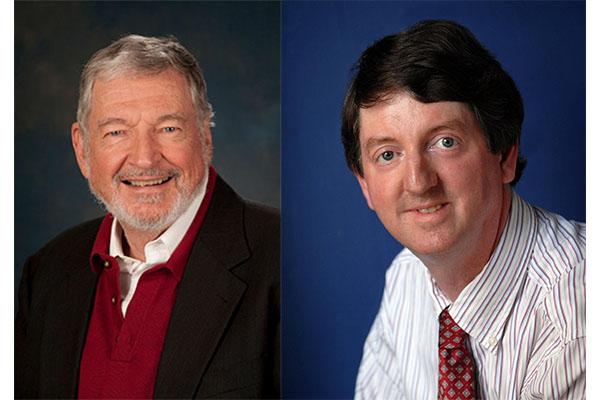Mueller, Stewart publish new book on airline security

Since 9/11, airline passengers have learned to put liquids in 3-ounce containers, take off their shoes, and go through full-body scanners, all in the name of protecting themselves from terrorism. But are these extra measures making us any safer?
About $10 billion is spent each year to deal with terrorist attacks to aviation, yet these expenditures are rarely subjected to cost-benefit or risk analysis. Are We Safe Enough? Measuring and Assessing Aviation Security, by Mershon affiliates Mark Stewart and John Mueller, seeks to fill that void.
The book, published by Elsevier, explains how standard risk and cost-benefit analysis can be applied to aviation security in a systematic, straightforward, and fully transparent manner. It constructs a full model of the security system, describing the effectiveness, risk reduction, and cost of each layer, from policing and intelligence, to checkpoint passenger screening, to armed pilots on the flight deck.
Stewart and Mueller conclude that it is entirely possible to attain the same degree of safety at far lower cost by shifting expenditures from measures that provide little security at high cost to ones that provide more security at lower cost.
For example, the air marshal program in the United States costs more than $1 billion per year, but reduces risk of a terrorist attack by only 0.2 percent. Installing secondary barriers to cockpits would see a greater reduction of risk while saving hundreds of millions of dollars to both taxpayers and airlines.
In addition, the book shows how the system can be made more efficient, providing great benefits to passengers, the airlines, and the taxpayer. It also finds that aviation security costs proportionately much more in the United States than in Australia, Canada, and elsewhere.
The authors also evaluate, and put into context, the degree to which terrorism presents a threat to aviation, and they discuss and apply the key notion, largely ignored by excessively risk-averse officials, of acceptable risk.
Key features of the book include
- Quantifying the risks, costs and benefits of various aviation security methods, including policing, intelligence, PreCheck, checkpoint passenger screening, behavioral detection, air marshals and armed pilots
- Focusing on security measures that reduce costs without reducing security, including PreCheck, Federal Flight Deck Officer program and Installed Physical Secondary Barriers
- Featuring risk-reduction insights with global applications that are fully transparent, and fully explored through sensitivity analysis
More information is available on the book flyer.
John Mueller is Woody Hayes senior research scientist at the Mershon Center for International Security Studies and professor of political science at Ohio State University, as well as a senior fellow at the Cato Institute. Mark Stewart is professor of civil engineering and director of the Centre for Infrastructure Performance and Reliability at University of Newcastle in Australia.
Stewart has been a visiting scholar at the Mershon Center several times, collaborating with Mueller on Terror, Security, and Money: Balancing the Risk, Benefits, and Costs of Homeland Security (Oxford, 2011) and Chasing Ghosts: The Policing of Terrorism (Oxford, 2016).
